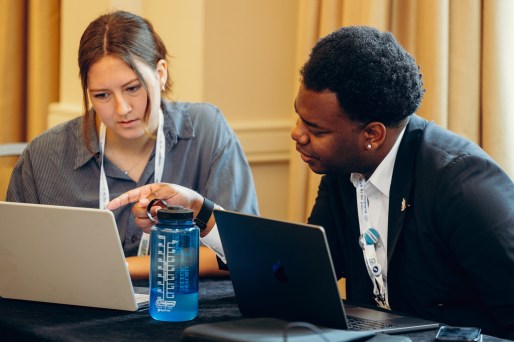The Value of Fact-Checking on the planet of News Online
The frequency of false information in today's on-line news landscape has gotten to startling levels. Fact-checking organizations play a vital duty in counteracting this trend. They confirm cases and improve the integrity of journalism. The performance of these companies commonly pivots on their methodologies and public perception. As audiences browse this complicated setting, the implications of their searchings for might form the future of news usage and trust fund. What does this mean for the honesty of details moving on?

The Rise of False Information in the Digital Age
Exactly how has the advent of electronic technology added to the spread of misinformation? The quick growth of the internet and social media systems has facilitated the dissemination of details at an unprecedented pace. Users can share write-ups, videos, and point of views with a mere click, often without confirming the content's precision. Algorithms focus on sensational or mentally charged material, causing a proliferation of misleading narratives that catch attention.
Furthermore, the privacy afforded by electronic platforms allows people to spread out false information without liability (stnews.live). Misinformation grows in resemble chambers, where individuals are revealed largely to viewpoints that strengthen their beliefs, better entrenching falsehoods. The saturation of info can bewilder users, making it challenging to discern qualified sources from unreliable ones. As a result, false information has become a pervasive problem in the digital landscape, impacting public opinion and count on reputable news sources
The Duty of Fact-Checking Organizations
Fact-checking organizations play a vital function in improving the trustworthiness of journalism by validating cases made in report. Their initiatives are crucial in combating misinformation, guaranteeing that exact information prevails in the electronic landscape. By holding media electrical outlets accountable, these companies contribute substantially to informed public discourse.
Enhancing Reputation in Journalism
While false information proliferates in the digital age, fact-checking companies play a crucial duty in improving the reputation of journalism. These organizations meticulously verify cases made in news write-ups, public declarations, and social media posts, guaranteeing that information shared to the public is exact and credible. By providing independent evaluations, they work as an essential resource for journalists, assisting them maintain high standards of stability. In enhancement, their initiatives promote transparency in media, cultivating public count on. As target markets end up being increasingly discerning, the visibility of respectable fact-checking entities can distinguish trustworthy news resources from those that may spread frauds. Eventually, the dedication of fact-checking organizations to copyright truthfulness is crucial for the health and wellness of autonomous discourse.
Combating Misinformation Properly
As false information remains to spread out swiftly across digital platforms, the duty of fact-checking organizations comes to be significantly essential in the battle for accurate details. These companies act as watchdogs, scrutinizing cases made by somebodies and media electrical outlets to guarantee responsibility. By utilizing extensive research study techniques and professional analysis, they verify truths and clarify deceptive narratives. Their findings are shared through numerous channels, educating the public and promoting critical reasoning. On top of that, partnerships with social media sites platforms improve their reach, permitting timely flagging of false info. As electronic literacy grows, the impact of fact-checking companies is necessary in empowering target markets to discern truth from falsehood, inevitably adding to a more informed culture.
Just How False Information Affects Public Perception
False information substantially weakens count on in media, leading audiences to question the credibility of news resources. As an outcome, individuals typically move towards electrical outlets that reinforce their current beliefs, adding to the polarization of point of views. This dynamic develops a fragmented info landscape, where shared recognizing becomes increasingly difficult to accomplish.
Rely on Media

Count on media has actually ended up being significantly fragile in the digital age, where the fast spread of false info can skew public perception. As misinformation multiplies across social media sites and online platforms, target markets usually find it testing to discern legitimate resources from undependable ones. This unpredictability promotes hesitation, leading numerous individuals to examine the motives behind news coverage. Count on in established media outlets has actually decreased, as customers increasingly turn to alternative sources that may do not have strenuous editorial requirements. This erosion of trust not only affects individual ideas but likewise undermines the collective capability to take part in notified conversations. Inevitably, the integrity of journalism is at stake, highlighting the essential demand for reliable fact-checking to bring back self-confidence in the media landscape.

Polarization of Opinions
The raising skepticism towards typical media has added to an expanding polarization of point of views among the public. False information, usually disseminated with social networks and online systems, plays a significant role fit unique ideological separates. Individuals regularly choose details that straightens with their pre-existing beliefs, strengthening their viewpoints while disregarding opposing perspectives. This resemble chamber result increases departments, bring about a fragmented public discussion where agreement becomes significantly evasive. Additionally, sensationalized narratives grow in this environment, even more skewing public perception and cultivating wonder about in reputable sources. As polarization escalates, the requirement for reliable fact-checking becomes paramount to bridge gaps and promote informed conversations, eventually guaranteeing a more natural culture efficient in steering intricate issues.
Techniques for Effective Fact-Checking
Reliable fact-checking depends on a systematic strategy that consists of thorough research study, verification of resources, and essential analysis of cases. A fundamental technique is cross-referencing details from several legitimate sources to verify its precision. Fact-checkers frequently make use of specialized data sources and archives to map the origin of certain declarations, ensuring that the reported information lines up with documented evidence.
Another necessary method involves scrutinizing the context in which claims exist. Misleading info can occur from out-of-context quotations or selective data usage. By taking a look at the more comprehensive story, fact-checkers can determine prospective biases or misconceptions.
Additionally, engaging with specialists in relevant fields can offer clearness and understanding that boosts the fact-checking procedure. This collaboration can discover nuances that laypeople might ignore - stnews.live. Ultimately, a disciplined approach integrating these techniques cultivates an extra informed public, enhancing the dependability of details distributed in the digital age
The Effect of Social Media Site on News Intake
Just how has social media changed the means individuals consume news? The emergence of systems like Facebook, Twitter, and Instagram has significantly modified news usage patterns. News is now distributed swiftly, enabling users to get more accessibility real-time updates and involve with content with find out here now sort, shares, and remarks. This immediacy has fostered a choice for bite-sized info, usually at the expenditure of extensive evaluation.
Social media allows individualized news feeds, where formulas curate material based on customer choices, producing resemble chambers that may limit exposure to varied viewpoints. The duty of standard news outlets has lessened as individuals increasingly rely on peer suggestions and trending subjects. Subsequently, the reliability of details is frequently endangered, as sensationalism can overshadow factual coverage. On the whole, social networks has actually improved news intake, highlighting rate and customization while challenging the standards of journalistic honesty.
Equipping Audiences to Recognize Dependable Resources

Additionally, examining the authorship and organizational history of newspaper article can reveal possible prejudices. Cross-referencing information across several trustworthy outlets additionally improves the confirmation process. Making use of electronic tools, such as web browser expansions that rate the credibility of internet sites, can additionally aid in identifying trustworthy details. By actively involving with these resources and cultivating a vital way of thinking, audiences can better outfit themselves to determine reputable news sources, eventually cultivating a much more educated culture in the middle of the intricacies of today's media setting.
The Future of Journalism and Fact-Checking
As the media landscape develops, the future of journalism and fact-checking encounters both tests and opportunities. The rise of digital platforms has actually democratized information dissemination, enabling varied voices to emerge. This has additionally led to the expansion Get the facts of misinformation, necessitating durable fact-checking systems. Journalists will increasingly depend on innovation, including AI devices, to validate facts rapidly and successfully.
Collaboration in between news organizations and fact-checking entities is anticipated to strengthen reputation and openness. Target market involvement will certainly play an essential duty, as notified readers come to be considerable partners in determining reliable web content.
The need for responsibility and accuracy is most likely to grow, pressing journalists to copyright high criteria in their coverage. Eventually, the future of journalism may rest on its capability to adjust to technical advancements while preserving journalistic integrity, guaranteeing that fact-checking stays a keystone of reputable news.
Regularly Asked Inquiries
Just How Can I Report Misinformation I Encounter Online?
To report misinformation run into online, people can use platform-specific coverage devices, provide clear proof, and share the information with fact-checking companies. Engaging with area conversations can additionally assist elevate recognition about the false information.
What Are Typical Indicators of Misinformation in News Articles?
Common indicators of misinformation in newspaper article consist of sensational headlines, lack of reliable sources, emotional language, irregular facts, and absence of author qualifications. Visitors need to seriously examine material for these indicators to recognize precision.
Just How Do Fact-Checkers Verify Sources?
Fact-checkers confirm resources by cross-referencing details with reputable databases, speaking with specialists, and examining the initial context of cases. They also evaluate the dependability of the resources, guaranteeing accurate and trustworthy info for public consumption.
What Lawful Activities Can Be Taken Versus Misinformation?
Lawsuits versus false information might consist of libel claims, cease-and-desist orders, and regulative penalties. Targets can look for redress with civil courts, while some territories enforce fines or permissions on platforms sharing incorrect information.
Exist Apps for Fact-Checking News On-The-Go?
Various applications exist for fact-checking news on-the-go, including Snopes, FactCheck.org, and PolitiFact. These applications assist individuals confirm claims rapidly, promoting notified decision-making and promoting a more discerning method to consuming news in real-time.